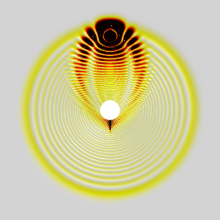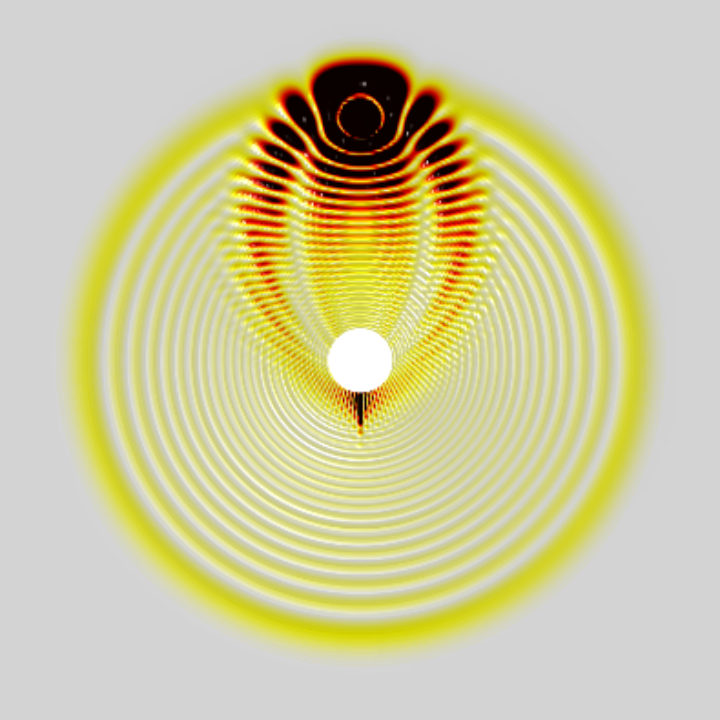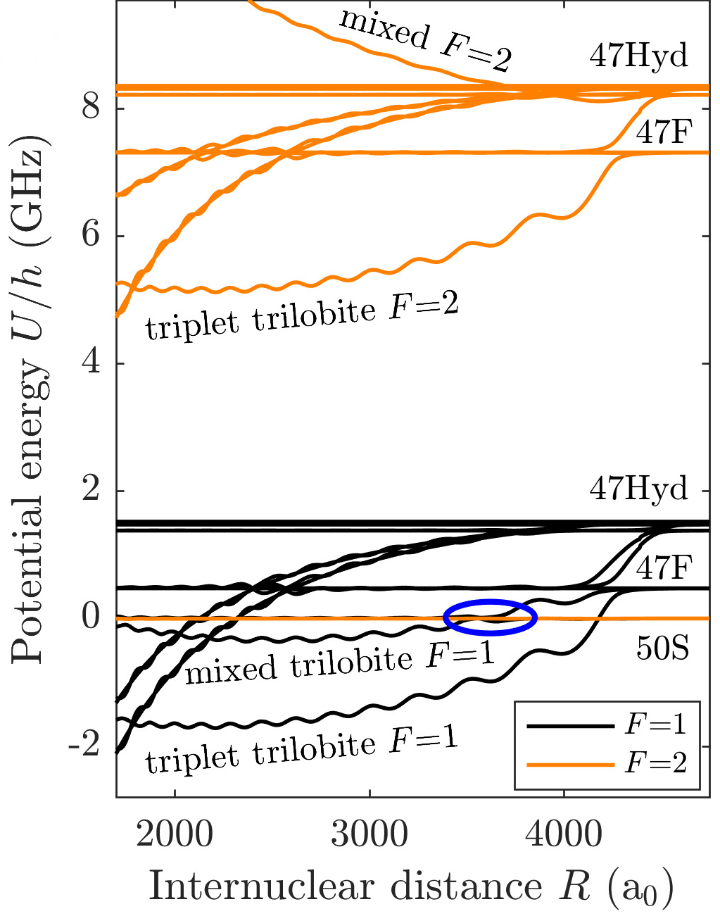Ultracold molecules which possess strong dipolar character are of central interest for a plethora of developments and applications in ultracold chemistry, precision spectroscopy, quantum information processing, or quantum many-body physics. Ultralong-range Rydberg molecules constitute an exotic class of dipolar dimers, which consist of a highly excited Rydberg atom bound to a ground-state atom. A subclass of these molecules, so-called trilobite-molecules, exhibit record-breaking dipole moments exceeding thousands of Debye. At the heart of the strong dipolar character is the exotic shape of the Rydberg electron wavefunction, which features a large weight in the vicinity of the ground-state atom. This provides efficient charge separation over distances of typically thousands of Bohr radii.
Yet, the spectacular shape of the electron wavefunction requires a large admixture of electron orbitals with high angular momentum L. Those are generally difficult to reach via standard laser excitation schemes. Consequently, the large dipole moment of the trilobite-molecules also makes them difficult to produce experimentally. In our work, we circumvent this problem and report a novel and generally applicable technique to produce hybrid trilobite-molecules with a large permanent dipole moment.
For this, we exploit the full complexity of the molecular structure comprising all relevant angular momenta and their respective couplings. In particular, the electron-neutral interaction, which causes the molecular binding, mediates a coupling between the nuclear spin of the ground-state atom and the orbital angular momentum of the Rydberg electron. By a suitable choice of the Rydberg level we tune this spin-orbit interaction into resonance and produce a hybrid molecule with trilobite high-L as well as low-L (L=0) character. While the trilobite character leads to a large dipole moment of ~135 Debye the low-L contribution allows us to associate our molecules via standard laser excitation schemes.
Original Publication:
K. S. Kleinbach, F. Meinert, F. Engel, W. J. Kwon, R. Löw, T. Pfau, and G. Raithel
Photo-association of trilobite Rydberg molecules via resonant spin-orbit coupling
Phys. Rev. Lett. 118, 223001 (2017)




